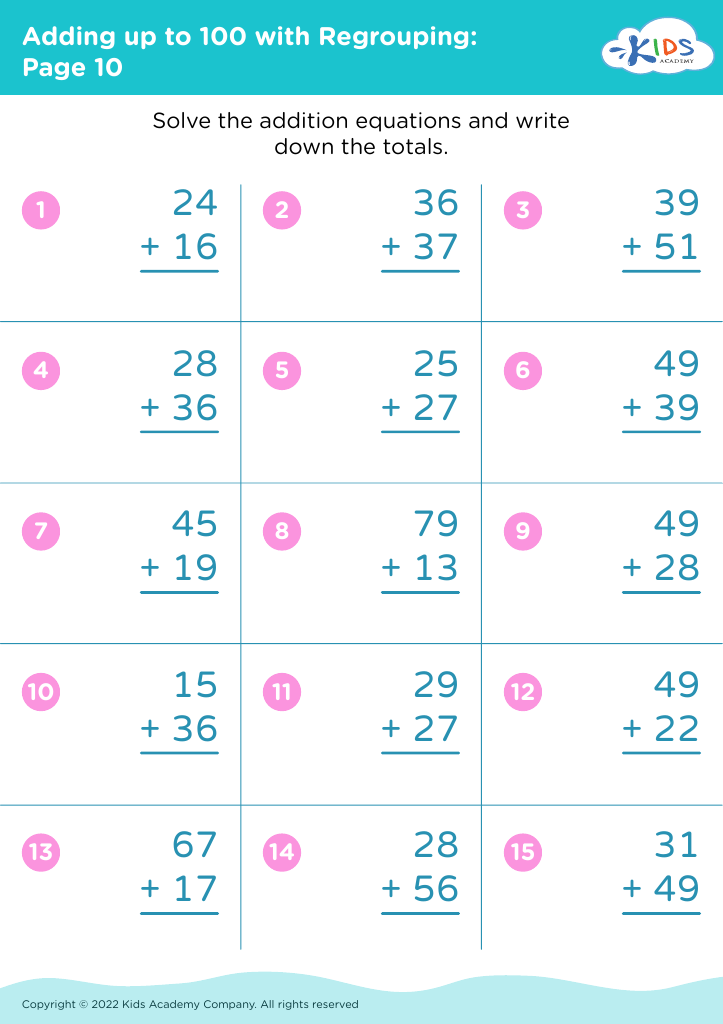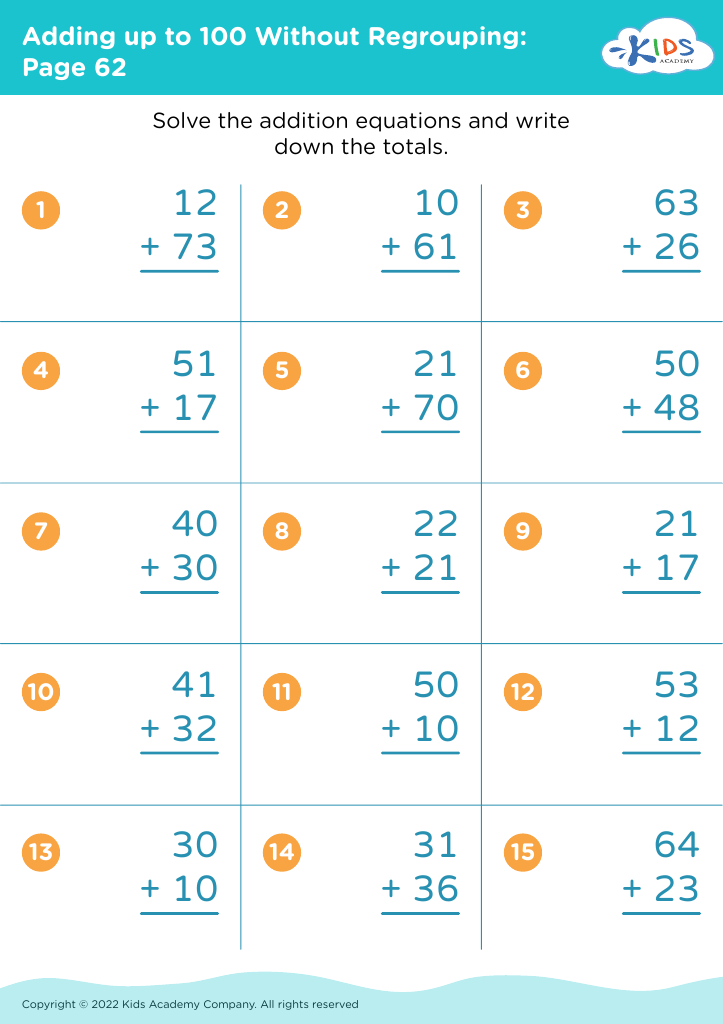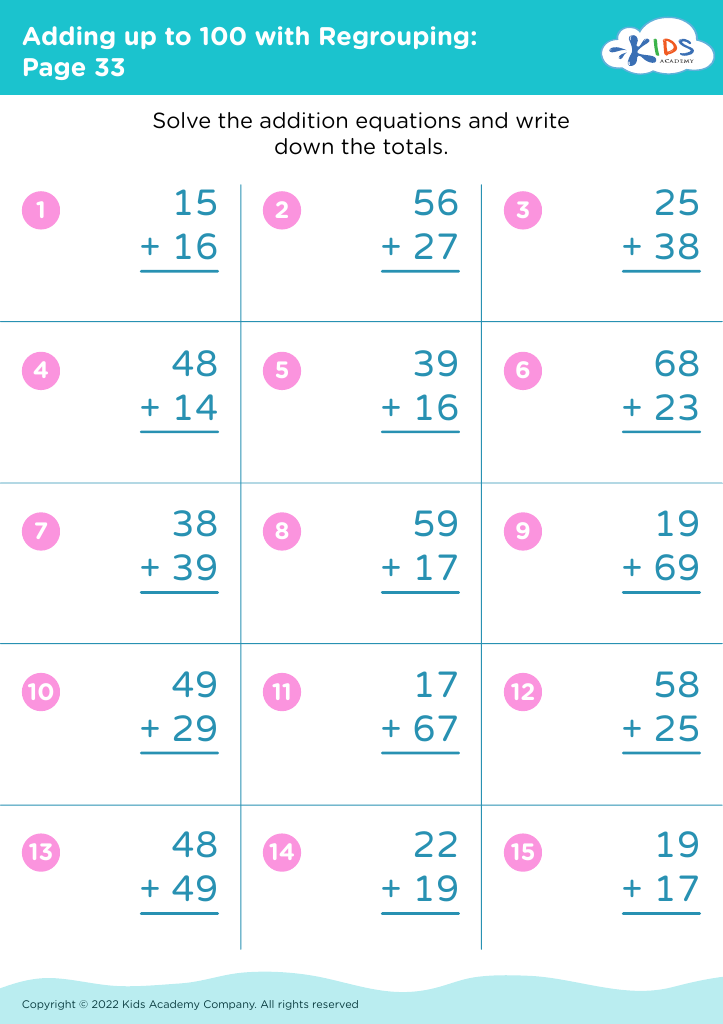Understanding fractions Adding up to 100 Worksheets for Ages 4-7 - Page 3
Understanding fractions and the concept of parts adding up to 100 is crucial for children aged 4-7 as it lays a foundational understanding of mathematics and problem-solving skills. At this early developmental stage, children are learning to recognize patterns and relationships between numbers, and fractions introduce them to the idea that numbers can represent parts of a whole.
By grasping fractions, children begin to comprehend division and proportional reasoning, which are essential for more complex math concepts later in their education. For instance, if a child learns that 1/2 and 2/4 are equal, they’re not just working with numbers; they’re developing critical analytical skills.
Moreover, learning how different fractions can combine to form a whole—specifically how they can add up to 100—ties into their understanding of percentages, a concept they will encounter frequently in everyday life, from calculating discounts to understanding statistics in school.
Finally, these skills enhance confidence in mathematical abilities. When parents and teachers emphasize fractions, they equip children with the knowledge and habits they need to enjoy and excel in math, promoting lifelong learning and curiosity in the subject. This foundational understanding not only supports academic success but also offers tools for navigating daily life efficiently.







%20(1).jpg)










